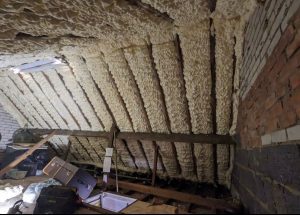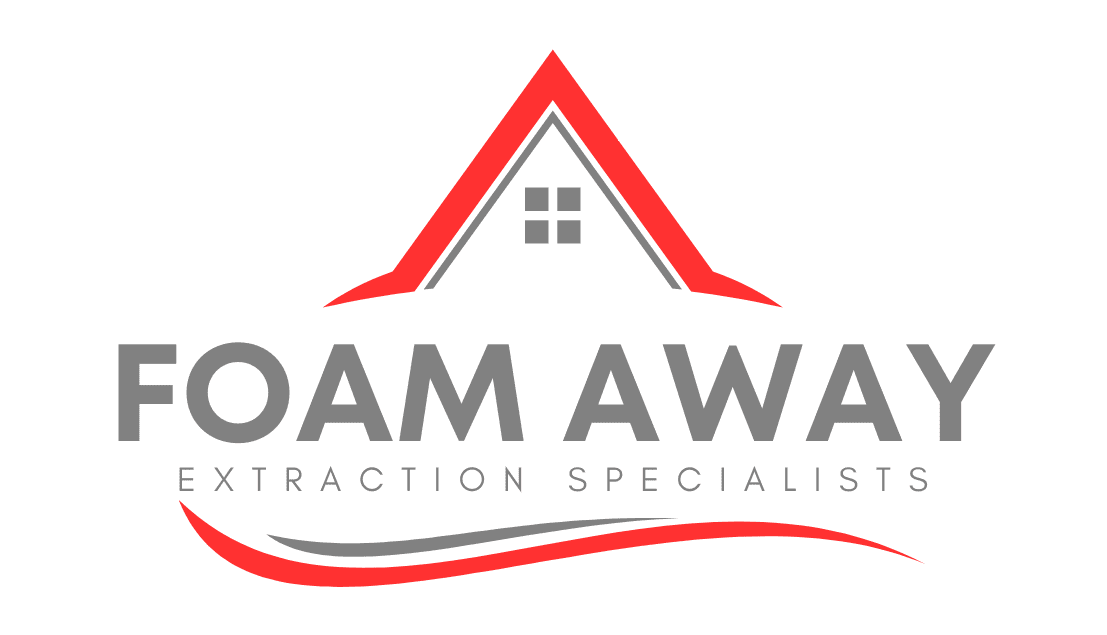When Susan Brameld agreed to have spray foam roof insulation installed in her Hilsea home, she had no idea she was opening the door to a nightmare that would leave her home virtually worthless.
The 78-year-old widow, now residing in Fareham, was cold-called by a spray foam insulation company in 2019 who mis sold spray foam insulation and persuaded to spend £4,800 under a government-backed ‘green deal’ scheme aimed at reducing energy bills.
However, just two years later, she had to pay an additional £5,500 to have it removed after discovering she had been scammed and mis-sold spray foam insulation. Her three-bedroom home, valued at £360,000, had become unsaleable.
In poor health, she discovered the problem only when she decided to downsize to a two-bedroom bungalow after the death of her husband, Arthur.
Susan discovered that banks and other lenders were unwilling to provide financing to potential buyers for properties with timbered roof spaces sprayed with foam insulation.

Spray foam insulation has been in use for around 30 years and has gained popularity over the last decade. However, property surveyors caution that the foam, which expands and dries solid, can restrict air circulation, leading to roof timber rot and putting stress on a building’s structure.
Concerned that other homeowners might fall into the same mis-selling trap, Susan wanted to warn others that the only way to sell their home might be to spend thousands of pounds to have the foam removed.
‘I now know I was scammed by the sales patter,’ she said, ‘but the company who installed it went bust and the work wasn’t guaranteed. I found the so-called guarantees invariably didn’t extend to any damage caused by rogue workmanship or dodgy technology.
‘I was told that it was government approved, I’d save more than £500 a year, and the more than adequate fibreglass roof insulation in my loft was a health hazard about to be declared illegal.
‘I confess I was quite happy with the job at the time, but I’ve had to put up with endless worry and sleepless nights when potential homebuyers kept pulling out of the sale because they couldn’t get a mortgage following a surveyor’s valuation.
‘I was devastated when one interested buyer showed me a survey report which put the value of my home at zero after pointing out it hadn’t been inspected before the spray treatment and I’d been poorly advised.’
Construction writer and former university building lecturer Jeff Howell told Streetwise that he had been warning readers for many years about the dangers of spraying foam insulation onto the underside of roof slates or tiles.
He said, “The claims for the product are nonsense and can cause irreparable damage to timber battens and rafters. It’s a bad idea and goes against building regulations, which require a clear 50mm (two inch) ventilated air gap between the insulation and the tiles or slates. If anyone feels the product was mis-sold to them, they should discuss it with their local trading standards office.”
The Residential Property Surveyors Association (RPSA) and the Property Care Association (PCA) have also strongly condemned the use of spray foam insulation, warning that it could make around 250,000 homes un-mortgageable or ineligible for equity release.
They convened a forum of industry stakeholders to evaluate the use and implications of domestic spray foam insulation products. The forum concluded that unless surveyors receive detailed information from installers at the point of inspection—including the condition of the roof and its flashing before and after insulation, the type of foam used, and the quality of roof space ventilation—no property professional would likely speculate on the potential risk.
In a damning conclusion, they stated that they had “failed to identify any circumstances” where a roof with this insulation could be given a “clean bill of health.” The guidance to their members was to adopt a highly cautious approach, recommending the removal of spray foam in almost every case.
The original government ‘green deal’ scheme folded in 2015 due to poor uptake, but it gave rise to numerous dubious companies looking to exploit the home energy improvement market.
Insufficient provisions were made to protect consumers from incompetent or scam operators, as there were no stringent measures requiring these companies to have procedures in place to provide detailed pre- and post-installation records to satisfy a surveyor’s inspection.
A subsequent government ‘green homes’ grant scheme also failed quickly, facing criticism for bureaucratic application procedures and the availability of cheaper finance through banks. RPSA chairman Alan Milstein publicly warned that installers often prey on older, vulnerable homeowners, using certifications and ‘quality’ badges to convince people that spray foam would benefit their property.
He added, “Sadly, the exact opposite is true. Homeowners may find their property difficult or impossible to sell, as lenders may refuse to offer mortgages or equity release funds, and they may have to spend thousands of pounds replacing their entire roof covering.”
A Streetwise investigation of Companies House records revealed that a large number of spray foam insulation companies emerged to take advantage of the government’s green deal scheme. Many of these companies have since folded or been struck off for failing to produce accounts. They often resort to ‘phoenixing’—a legal loophole that allows under-capitalized firms to abandon their debts and resume trading by setting up a new company with a name similar to the original.
A spokesman for Hampshire Trading Standards said, “We are aware of various scams targeting homeowners, and we advise people to always be cautious when employing tradespeople for repairs or improvements. Many scams involve tactics that should raise alarm bells, including cold calling, pressure to sign up quickly, and spurious claims about government grants. People can find reliable, Trading Standards-approved and verified trade services using our Buy With Confidence scheme at www.buywithconfidence.gov.uk. Further guidance and advice are available from the Citizens Advice Consumer Service at 0808 223 1133 or www.citizensadvice.org.uk/consumer.”

